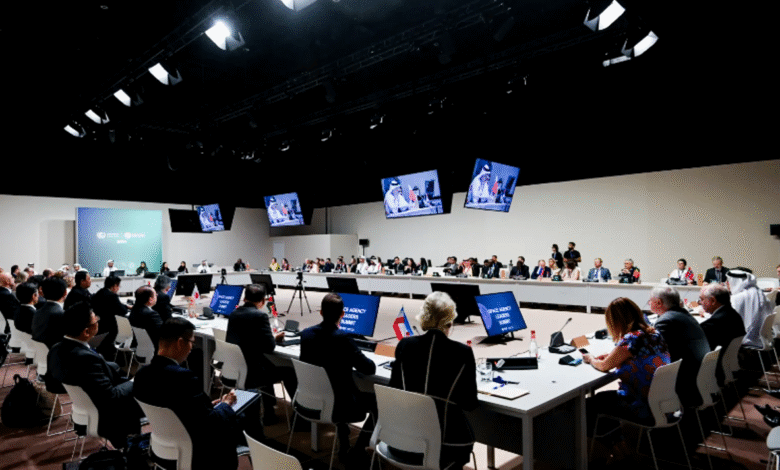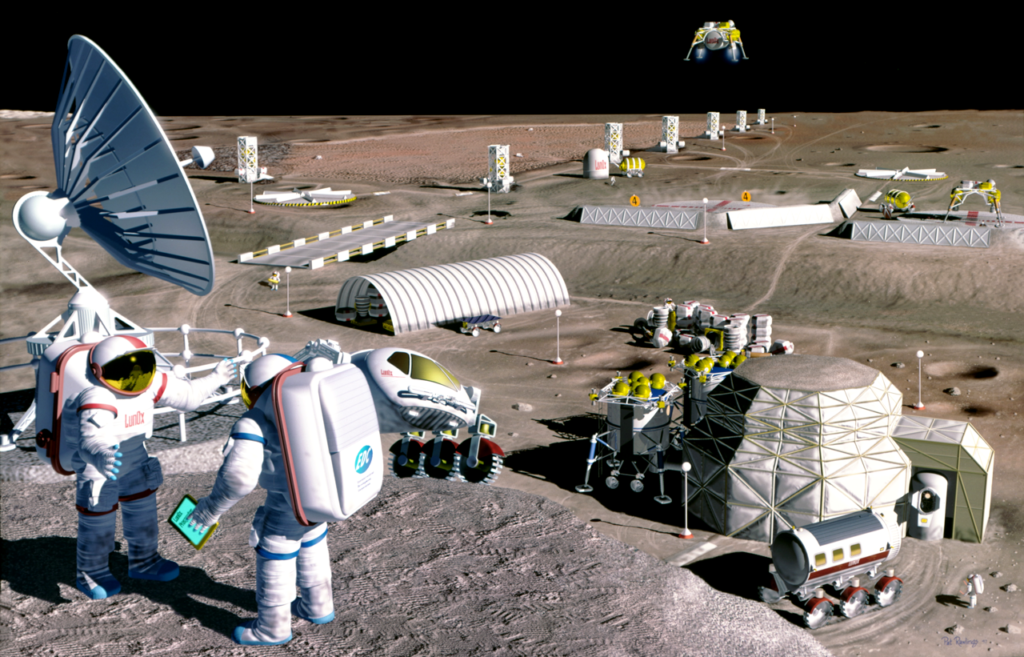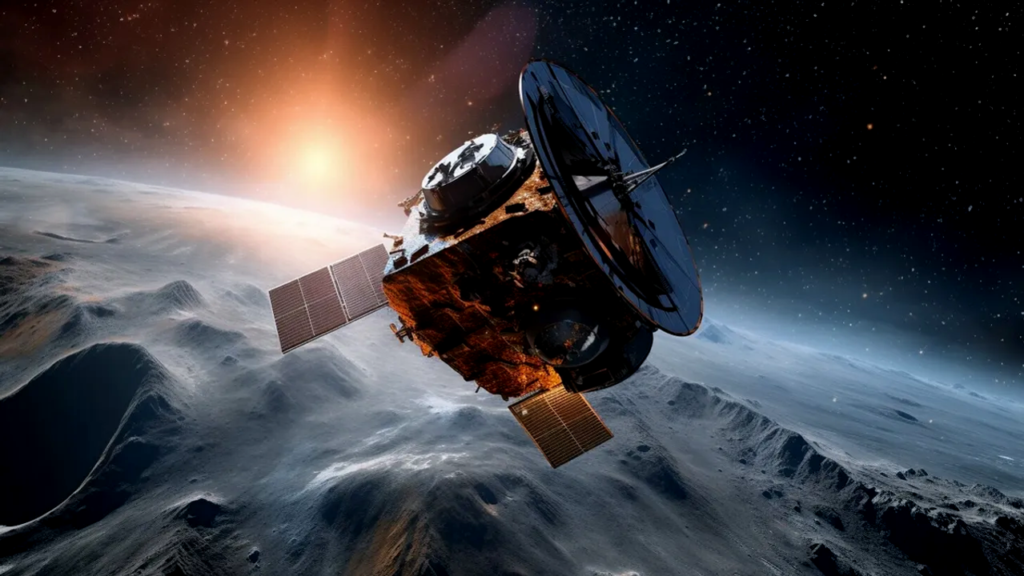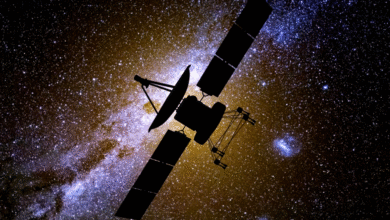
In the vast expanse of space, collaboration among space agencies has become more crucial than ever. As humanity ventures further into the cosmos, the need for unified efforts in space exploration has led to remarkable partnerships. This article delves into the profound collaborations taking place among space agencies worldwide, shaping the future of space exploration.
Read More: The Business of Space: Commercializing the Final Frontier
Space Agencies Unite: Collaborations in the Final Frontier
Collaboration in space exploration is no longer merely a choice but a necessity. With ambitious goals such as reaching Mars and beyond, no single nation can achieve these feats alone. Thus, space agencies worldwide are coming together, pooling resources, expertise, and technology to embark on missions that were once considered impossible.
The Era of International Cooperation

Exploring New Horizons Together
Gone are the days when space exploration was driven solely by national interests. Today, space agencies recognize the value of collaboration in pushing the boundaries of human knowledge. Joint missions to distant planets, such as the Mars Rover expeditions, exemplify this spirit of cooperation. By sharing the costs and risks associated with space exploration, nations can achieve more together than they ever could individually.
Breaking Down Barriers
Collaborations in space exploration transcend geopolitical boundaries, fostering goodwill and diplomacy on a global scale. Projects like the International Space Station (ISS), where astronauts from different countries live and work together in space, showcase the power of unity amidst diversity. Through shared experiences and common goals, space agencies bridge differences and cultivate mutual understanding, laying the groundwork for peaceful coexistence both on Earth and beyond.
Leveraging Technological Advancements
Pushing the Boundaries of Innovation
Space exploration drives technological innovation like few other endeavors. By combining resources and expertise, space agencies accelerate the development of cutting-edge spacecraft, robotics, and instrumentation. For example, the Mars missions employ state-of-the-art rovers equipped with advanced scientific instruments to explore the Martian surface, paving the way for future human missions.
Sharing Knowledge and Expertise
Collaborations in space exploration facilitate the exchange of knowledge and expertise among spacefaring nations. Through joint research and development initiatives, scientists and engineers from different backgrounds come together to tackle complex challenges. Whether it’s developing new propulsion systems or studying the effects of long-duration spaceflight on the human body, collaborative efforts yield insights that benefit the entire scientific community.
Uniting for Scientific Discovery
Unlocking the Mysteries of the Universe
Space exploration is as much about scientific discovery as it is about adventure. Collaborative missions, such as the Hubble Space Telescope and the James Webb Space Telescope, enable astronomers to observe distant galaxies and cosmic phenomena with unprecedented clarity. By pooling resources and sharing data, space agencies expand our understanding of the universe and inspire future generations to pursue careers in science and technology.
Promoting Open Science
Collaborations in space exploration promote transparency and inclusivity in scientific research. Data collected from space missions are made freely available to researchers worldwide, enabling them to analyze and interpret the findings independently. Open science initiatives foster collaboration across disciplines, leading to interdisciplinary discoveries and innovation.
Embracing the Challenges Ahead
Navigating Through Uncertainty
As humanity ventures deeper into space, collaborative efforts become indispensable in addressing emerging challenges and risks. Space agencies unite to tackle obstacles such as space debris, radiation exposure, and sustainability concerns. By sharing resources and expertise, nations ensure the safety and viability of future space exploration endeavors.
Forging a Path Forward
Collaborations among space agencies pave the way for ambitious missions to distant worlds and beyond. Whether it’s exploring the icy moons of Jupiter or sending humans to Mars, joint efforts enable nations to achieve goals that were once considered science fiction. As we push the boundaries of what’s possible in space exploration, the spirit of collaboration will continue to guide humanity’s journey into the unknown.
Space Agencies Unite: Collaborations in the Final Frontier

International Space Station (ISS): A Symbol of Cooperation
The ISS stands as a testament to the power of collaboration. Built and operated by multiple nations, the ISS serves as an orbiting laboratory where astronauts conduct scientific experiments in microgravity. Through joint research and shared resources, the ISS fosters international cooperation and advances our understanding of life in space.
Read More: Space Exploration Updates: Discovering the Secrets of Universe
FAQs
- How do space agencies collaborate on missions? Space agencies collaborate through joint missions, sharing resources, expertise, and technology to achieve common goals.
- What are some examples of collaborative space missions? Collaborative space missions include the Mars Rover missions, the International Space Station (ISS), and joint satellite launches for Earth observation.
- How do collaborations among space agencies benefit scientific research? Collaborations facilitate the exchange of data and knowledge, enabling scientists to conduct research on a global scale and tackle complex scientific questions collaboratively.
- What challenges do space agencies face in collaborating internationally? Challenges include logistical complexities, cultural differences, and geopolitical tensions, which require diplomacy and effective communication to overcome.
- How does collaboration among space agencies contribute to technological advancements? Collaboration drives innovation by pooling resources and expertise, leading to the development of advanced spacecraft, instruments, and technologies for space exploration.
- What role does collaboration play in fostering international cooperation and diplomacy? Collaborations in space exploration promote diplomacy by transcending political boundaries and fostering goodwill among nations, paving the way for peaceful cooperation and shared achievements.
The Final Words
In the quest to explore the final frontier, collaboration among space agencies has emerged as a cornerstone of progress. By uniting in pursuit of common goals, nations transcend earthly divisions to explore the cosmos together. As we embark on ambitious missions to unravel the mysteries of the universe, the spirit of cooperation will continue to guide humanity’s journey into the unknown.








One Comment